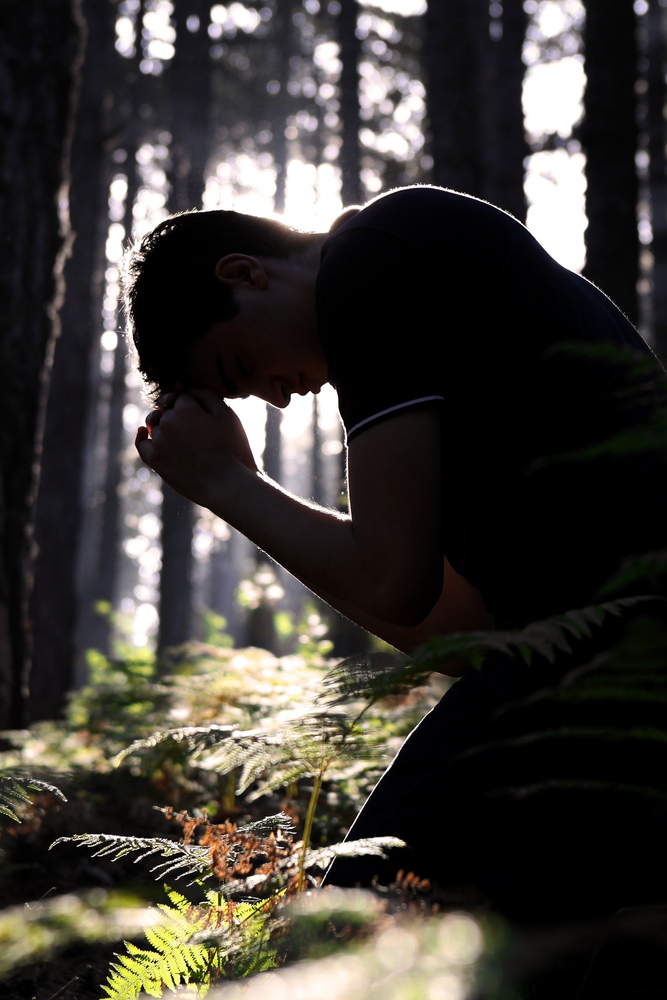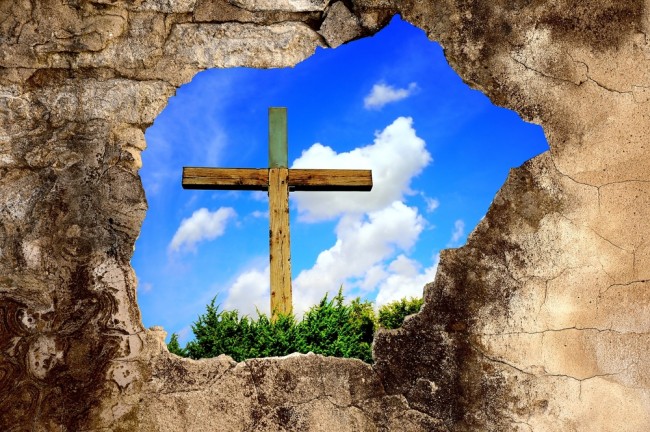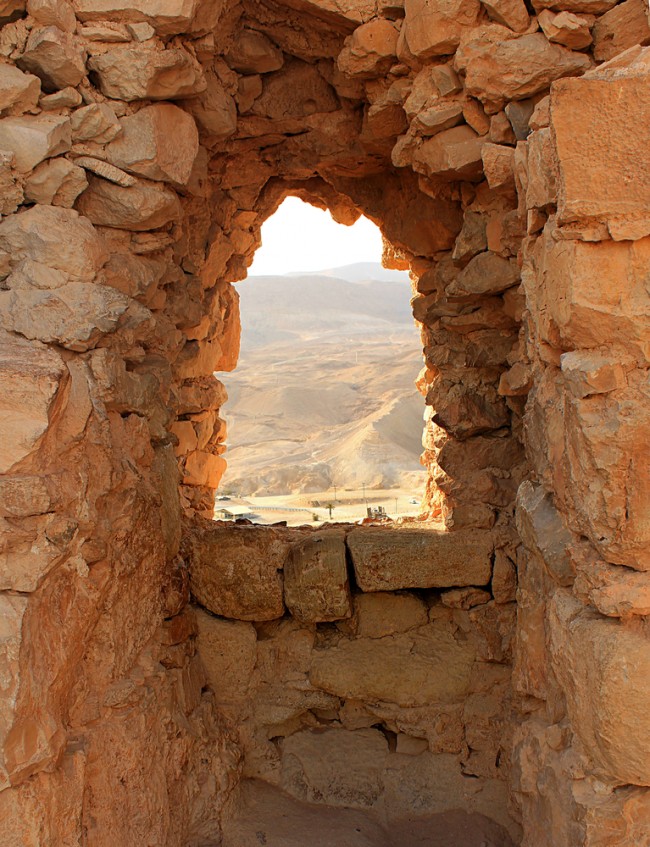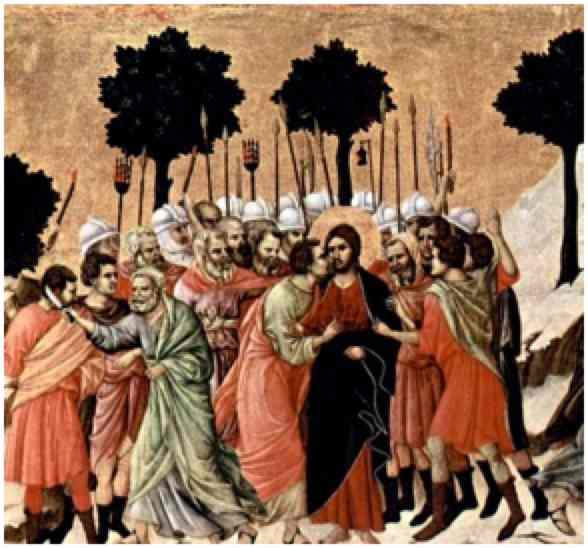Some people are highly devotional because it is scary having one's paradigm shattered. This is to be exposed to the chaos of one’s own mind (the devil!). It is much easier to cling to the established artifacts of one’s own thinking then to fall into the pit of chaos. Most people would rather die than admit that the belief system/paradigm that they have carried most or all their life is wrong in spite of proof of error time and time again.
In this article, I would like to point out 3 crucial problems that arise when one begins with “plain truths” about the book rather than the Christ, the Logos, the “structuring principle of reality.” (John 1:1–5)
Distributive justice-compassion, or “restorative” justice, argues that the rain falls on the just and the unjust, and that while the back-story may be compelling or repelling, violence is never the solution. When society’s protective systems “codify right from wrong, separating the holy from the profane,” who will call attention to the injustice that gets embedded in those very codes whose purpose is to protect and defend the safety and security of that society?
For Christians grace is God’s gift of pardon. According to William Barclay the Greek word for grace was originally a military term. When an emperor came to the throne or celebrated a birthday, he would give his troops a donatirim (donation), which was a free gift that they had not earned; it was given out of the goodness of the emperor’s heart. This idea was picked up by the Christian scripture writers when they wrote about the grace of God. Grace is something that is unearned and undeserved – unmerited pardon.
We need to subject the resurrection stories of the New Testament to the same critical analysis as we did the crucifixion. So let us examine Paul’s writings and the gospels in an attempt to discover what the event we call Easter really was.
But what our guide told us next has stayed in my memory for the almost twenty years since my visit. With a shrug of his shoulders he explained, “Well, we need a site. An important event—we need to have a site. Do we know exactly where it happened? No. But we must have a site so that we can remember.”
From the ‘Sing Young, Sing Joyfully’ collection
King David was a man of fire Who sang and danced for God. The raptures of his heart’s desire Were sacred gifts from God.
2 Kings 5
Bathe in muddy Jordan Seven times to make you whole Swim in muddy water Seven times to save your soul
A Gospel of Non-violence in a Violent World
We wrestle with the stark reality of the culture of gun violence in which we find ourselves, and a gospel message for the progressive Christian that is inherently non-violent. Advocates for one side of a heated debate insist the only way to stop a bad guy with a gun is a good guy with a gun; which is only true if the good guy is faster on the draw and a better aim. To assert the good guy always wins is, of course, a lie. There are plenty of examples of murder and mayhem in that compendium of stories we call the Bible. In some stories the good guy wins. In others, they lose; particularly those who choose the way of non-violent resistance unequivocally taught and demonstrated in the words and deeds of the Galilean sage and healer. It’s not a matter of a showdown to see who wins with a more forceful argument. Far from naïve, impractical and unrealistic, a non-violent response may be the only thing to break the perpetual cycle of violence. But how?
The underlying assumption in this study of Luke (and eventually Acts and the authentic letters of Paul) is that Luke wrote his gospel and his account of the Acts of the Apostles as a subversive counter to Roman oppression, and the Roman imperial theology that proclaimed Cesar (whether Augustus or Tiberias) as the son of God. The voice of John the Baptist screamed from the edges of civilization about “repentance” until Herod Antipas had had enough.
We can usefully consider the problem posed by the Bible for theologians and church leaders under three categories: the world behind the text, the world within the text, and the world in front of the text.
This word, used for centuries to justify an anti-gay posture, has been badly translated and even more poorly understood.
First celebrated in 1898, the Universal Day of Prayer for Students is observed on the third Sunday of February; in 2010 it is celebrated on February 21st. The UDPS is one of the oldest ecumenical days of prayer. In line with WSCF's theme for 2010 the UDPS theme is 'Climate Justice'. Former WSCF Chairperson Rev. Ejike Okoro of Nigeria has prepared the 2010 UDPS liturgy and accompanying Bible study on behalf of the Africa region.
Since it's almost entirely poetry and "true myth," and since we live in one of the most literal-minded cultures of all time, it's not surprising that the Bible largely remains a closed book. Those who make the loudest claims for its veracity often see its meaning less clearly than many they judge to be total outsiders. If you treat biblical myths as history, you end up with either distortion or absurdity. Even worse. As Voltaire once said: "Those who believe absurdities end up committing atrocities"






















